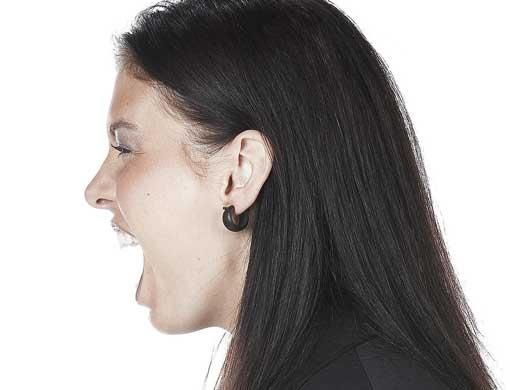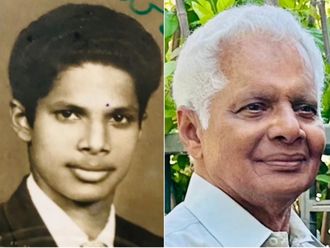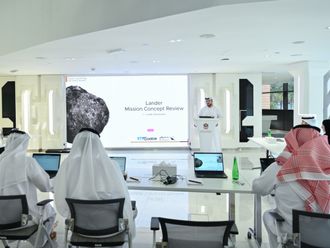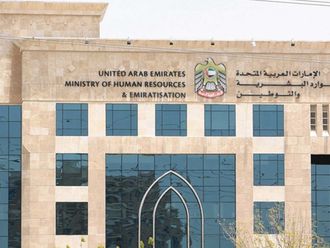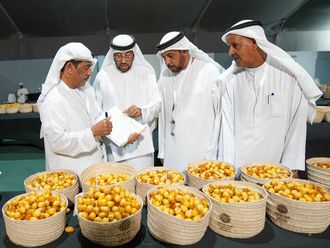Dubai: The top five languages used throughout the UAE are English, Arabic, Urdu, Malayalam and Hindi, according to a linguistics professor at the American University of Sharjah.
Of the world's 6,000 languages, thousands are not spoken in the public arena and almost half are in danger of disappearing altogether, according to the United Nations.
On the occasion of International Mother Language Day, a diverse cross-section of Dubai residents say that the protection of languages is vital to the preservation of their cultural identity. While we live in an undeniably multilingual world, the UAE as home to close to 200 nationalities offers a particularly diverse spectrum of languages.
Dr Fatima Badri, English and Linguistics professor at the American University of Sharjah, says that it is particularly important to preserve "mother languages" given the emphasis placed on learning English.
"Everyone wants to learn English because it is the global language. However, our languages are part of our heritage and civilisation; so, just as we don't want to see species disappear, we do not want to see languages disappear."
Dr Fatima said that some people are unaware that they are neglecting their language, but the fact remains that if you do not use the language, it will disappear. There are currently thousands of languages facing this fate, across the globe. Dr Fatima recently conducted a study on Arab students to ascertain the impact of using English on identity, and found that many did not feel conflicted about speaking English.
"They view it is an instrument and are still able to maintain their Arab identity," she said.
However, she believes many are unaware of the consequences of the "wholesale adoption of English" on their linguistic abilities.
Paradoxically, while there is waning interest in Arabic in the Arab world, according to Dr Fatima there are increasing numbers of non-Arabic speakers learning the language.
"People need to be aware that Arabic is an asset, not a liability," she said.
The status of Arabic has recently been in the spotlight. Pointing to the language's decline, the 2003 UN Arab Human Development Report said that only 10,000 books were translated into Arabic in the last millennium - equivalent to the number translated into Spanish every year.
The issue was most recently highlighted in the 2015 Dubai Strategic Plan His Highness Shaikh Mohammad Bin Rashid Al Maktoum, Vice-President and Prime Minister of the UAE and Ruler of Dubai, in which he stressed the importance of the language in the preservation of the UAE's national identity.
Journalist Muna Bu Samra ran in the UAE's recent Federal National Council elections on a platform stressing the importance of Arabic.
"The dominance of English has reached the extent that if someone doesn't know it they don't have a future and are considered illiterate," she said.
The language, she added, was important because it is "our method of communication with the outside world," but said that it should not supersede Arabic.
A solution to the perceived dominance of English, she argued, should start in the home.
"English has become the first language of many people. It's the parents' responsibility to teach their children their native language first."
Iranian Kamyar Khosrogorgi, 28, says that in the UAE he mostly uses Farsi. However, he often peppers his speech with other languages, including English, Arabic and Hindi - something he would not do in Iran.
"In Iran we strictly speak Farsi. We are very proud of our language and have a very rich literary history, especially our poets. We definitely need to preserve our language and I feel honoured to speak it."
Peter Dally, the headmaster of Dubai English Speaking College, says that English is the only language he can speak "but this shouldn't be the case."
The status of English as one of the most commonly spoken languages makes its native speakers "lazy," he said.
DISAPPEARING
Over half of world's languages are endangered
- Over 50 per cent of the world's 6,000 languages are endangered.
- 96 per cent of the world's 6,000 languages are spoken by 4 per cent of the world's population.
- 90 per cent of the world's languages are not represented on the internet.
- One language disappears on average every two weeks.
- 80 per cent of the African languages have no orthography.
- Source: Unesco
International Mother Language Day
With nearly 6,000 languages spoken around the world, February 21 marks International Mother Language Day, aimed at promoting linguistic diversity and multilingual education. According to the United Nations Educational, Scientific and Cultural Organisation (Unesco), which oversees the day, the event strives for all languages to remain in use alongside major international languages.
History
In 1952, when current day Bangladesh was part of Pakistan, the question over what should be the national language caused fierce debate, with Pakistani authorities arguing it should be Urdu, and Bengalis saying there should two national languages. The conflict led to demonstrations on February 21, in which several people died, and has been commemorated since as Bangladesh's national language day. In 1999, the Bangladeshi Government approached Unesco to declare the day International Mother Language Day.
Do you feel your mother tongue is losing in the language race? What language do you use the most to communicate?
Your comments
If you seek a career in France, Italy, Spain, Germany or any other european country, local language is essential. I think it should be same here as well. There sould be certain level of Arabic literacy mandatory for every foreigner seeking a career here. I am a foreigner here and I don't mind it.
Fakhar
Abu Dhabi,UAE
As an American Muslim I am trying to learn Arabic, I'm also learning French. My husband from Morrocco speaks four launguages. I think it is important to learn many lanuages, and keep them alive. I think it is very important we teach our children many languages too.
Randi
Portland,United States


